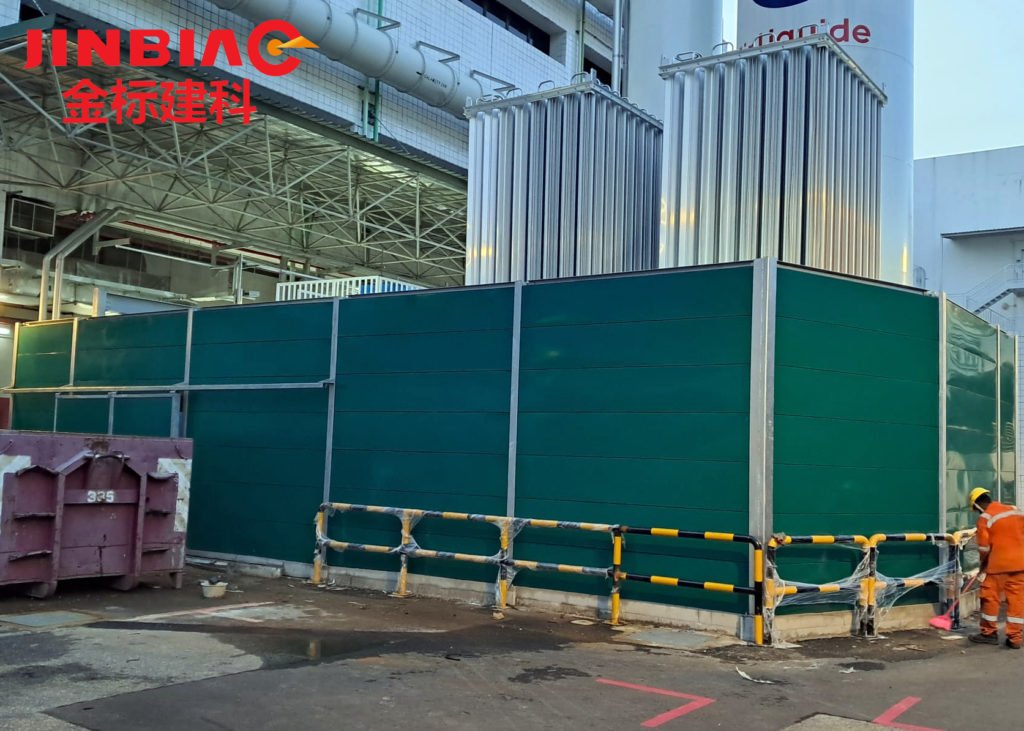
Whether you are a local city planner or a concerned resident, understanding where to construct noise barriers is crucial. Noise barriers can improve quality of life, reduce stress, and encourage outdoor activities; but they can also cause issues if not placed correctly.
Before building a noise barrier, consider potential sound sources in the area so that the barrier can be constructed in an effective manner. Identifying the sources will help determine the height and location of the barrier that is needed to block the noise. Common sources of noise can include arterial roads, highways, railways, construction sites, and industrial facilities.
It is important to evaluate all potential sources of noise, including those not currently present but may be in the future. This information allows engineers to design effective sound barriers that will mitigate unwanted noise and provide a more peaceful environment for people who live or work nearby. Conducting a thorough evaluation of potential sound sources is an essential first step in designing effective noise barriers.
One of the key considerations in the construction of sound barriers is their location. Identifying the areas that could benefit from noise barriers is critical in ensuring their effectiveness. Commonly, noise barriers are installed along highways, railways, and other transportation infrastructure.
However, identifying specific areas where the noise levels are high is crucial in determining the ideal placement of these barriers. Sound barriers should be placed in areas where they can effectively reduce the impact of noise on communities and residential areas. This can be achieved through conducting a noise study to identify the areas that need noise barriers and determining the height, length, and materials required for construction.
Determining the type of barrier to be used is an essential aspect of constructing an effective noise barrier. There are several types of sound barriers, and the selection of the ideal type depends on various factors. The type of noise barrier used will influence the level of noise reduction to be achieved.
Aesthetic value, cost, and other environmental factors, such as wind, temperature, and precipitation, will also come into play when selecting the most appropriate noise barrier type. Common types of noise barriers include absorptive, reflective, and combination barriers. Absorptive barriers work by absorbing noise energy, while reflective barriers reflect noise to the source. Combination barriers use a combination of absorptive and reflective materials to reduce noise.
One crucial factor in the construction of noise barriers is selecting a site that will effectively block sound. To achieve this, it is important to choose the appropriate installation site carefully. The location of the noise barrier is critical since it will affect its effectiveness. The site chosen should be close to the source of the noise and perpendicular to it to minimize sound penetration. Moreover, the height of the sound barrier should be such that it adequately blocks the noise and does not allow sound to be reflected back into the environment.
When determining where sound barriers should be constructed, it is essential to follow local regulations and safety considerations. Different states and municipalities may have specific guidelines regarding the height, length, and placement of sound barriers. It is crucial to research and adhere to these guidelines to avoid any legal or safety issues.
Hebei Jinbiao is a leading company in Noise Barrier products and Fencing products in Singapore. We guarantee to provide you with the most high-quality Sound Barrier and Fencing products along with our dedicated assistance. Do not hesitate to contact us. We are looking forward to helping you solve your noise issues, safety issues and protecting you from noise pollution as well as ensuring your safety.